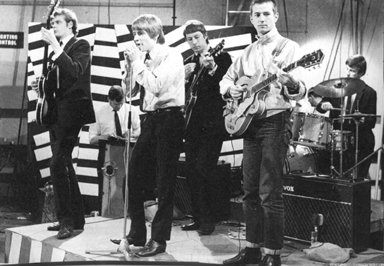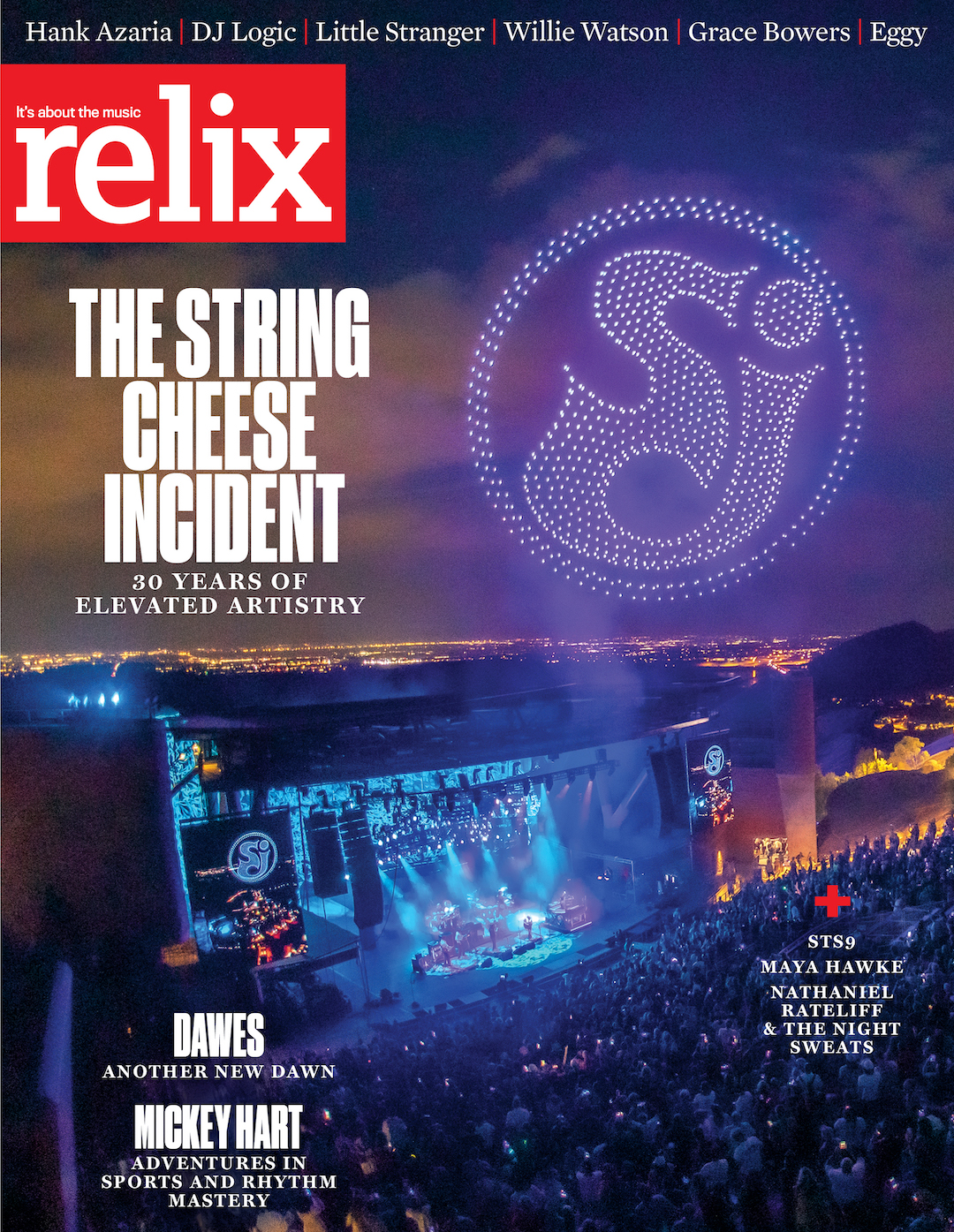The Yardbirds: Happenings “40 Years” Time Ago

The Yardbirds in July 1964: Paul Samuel-smith, Keith Relf, Chris Dreja, Eric Clapton and Jim McCarty
The Yardbirds, one of the most influential 1960s blues-based hard rock bands, enjoy the distinction of having three seminal guitarists – Eric Clapton, Jeff Beck and Jimmy Page – during its five-year initial incarnation.
Clapton joined in 1963 but left because the band, with its release of For Your Love, was becoming “too commercial.” Beck replaced him in 1965, and later Page dropped in before forming Led Zeppelin. (Zep’s original name was The New Yardbirds.) The band was inducted into the Rock and Roll Hall of Fame in 1992.
Two of The Yardbirds’ original members – Chris Dreja (rhythm guitar) and Jim McCarty (drums) – have resurrected the group to tour. Last fall, they performed at B.B. King’s in New York with a lineup of new musicians. Relix caught up with them for a brief lesson in rock history.
You worked with three guitar gods: Clapton, Beck and Page. What do you recall about each?
Jim McCarty: It was Eric first, and he was still learning the trade. He was a beginner. He would listen to old blues records and mimic the guitar sounds. He was very earnest, enthusiastic and keen. He would practice all day. Jeff was different. He seemed to be able to play without really practicing. He had an inborn talent. It was wonderful, inspirational – stuff you never expected. And Jimmy was different because he was from the session side. He was used to doing what people wanted in the best way possible. When he came to the group, he did just that – played what we wanted. He was precise and businesslike. That all probably changed with [Led] Zeppelin, but I can’t speak for that era. [Laughs.]
You’ve played Yardbirds tunes for more than half a century. What is the audience like now and do you ever get bored?
Chris Dreja: I’m happy to say that those from my generation are still out there kicking! We get a lot of young people, too. It’s a cross section. And we never perform the songs quite the same, so I never get bored. It’s like jazz or blues: You play the same 12 bars but, somehow, every time is a little different. The nuances, the new guys in the band – all that brings something. There’s such energy in the music, too – from “I’m Not Talking,” to “Shapes of Things,” to “Mr. You’re a Better Man Than I,” to “I’m a Man.” At the moment, my favorite is “Happenings Ten Years Time Ago.” That was a neat track. It took the public a long time to get hold of it. It’s a two-and-a-half minute opera!
You mentioned energy from newer group members. Keith Relf, your original singer, passed away in 1976.
Dreja: Keith was very underrated. He was a great singer and harmonica player. But he got overshadowed by the guitarists. In those days, we didn’t have good PA systems. Keith was also a sensitive soul. He wrote great lyrics. He started to drink and take various drugs. [He] started out as a very sensitive young man, [but] after five or six intense years on the road, [he] became a bit of a mess. Some people self-destruct. He had a little of that in him. I was surprised but not surprised when he died because I knew he had delicate health and was not doing wise things to his body. He had a lung removed early on. I remember going to the funeral, in a quiet graveyard in Richmond [England]. I think he was in an unmarked grave for years. The family just got around to putting up a plaque.
Even though Keith was overshadowed, as time goes on, people appreciate the band more as a whole than as the individual guitar players. Those guys, apart from Jimmy, weren’t writers or composers. Eric used to suggest blues songs and Jeff didn’t really write at all. We’d write the songs and bring Jeff in to do top lines on them.
I heard that The Yardbirds toured with The Beatles back in the day. What was that like?
Dreja: In the early ‘60s, they used to come to London for a Christmas show. We were the local London band, so they invited us to be part of it. We played with them every day for a week. They were the great, fully formed characters you know now. John Lennon was the bright, in-your-face guy; Paul McCartney was charming; Ringo [Starr] was the funny one; and George [Harrison], the quiet one, got on very well with Eric [Clapton]. In those days, as fellow performers, we had unlimited access. They used to come to our dressing room and try out new songs. Paul played something called “Scrambled Eggs” for us that later turned into “Yesterday.” We knew that once he got the lyrics right, it was going to be very nice.



















